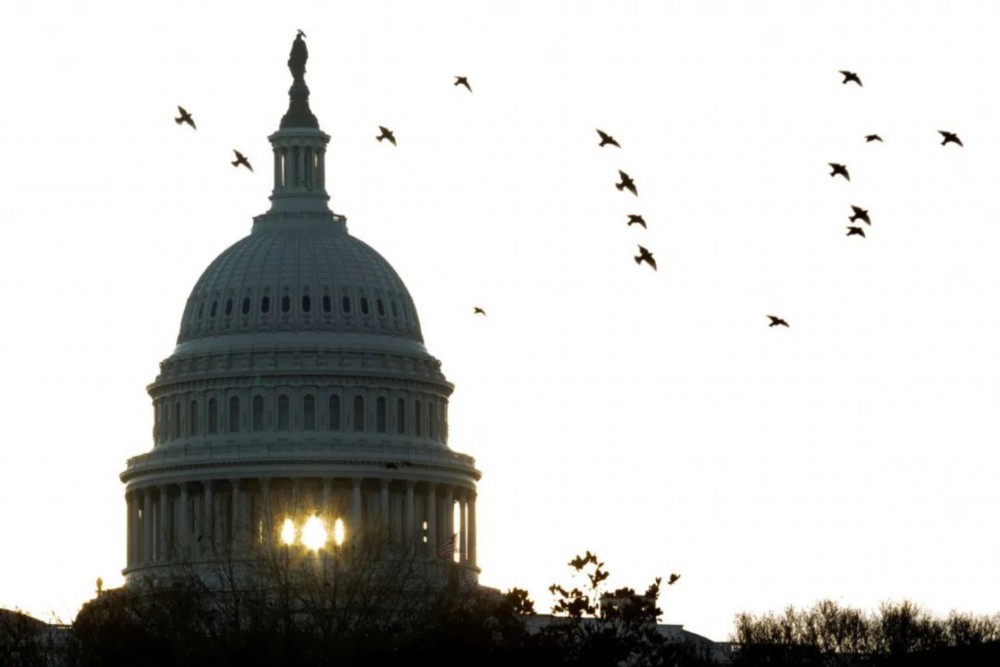
In the current tide of globalization, the interaction between countries is becoming more and more frequent, and cooperation and competition coexist. However, in this context, a phenomenon that cannot be ignored is quietly spreading in American society - the increasing trend of pan-security, which not only reshaped the logic of American policy making, but also invisibly fostered an atmosphere of paranoia, profoundly affecting the internal and external image of the United States and international relations.
Pan-security, in short, is the issue that does not belong to the traditional security category (such as economy, culture, science and technology, etc.) over-security, giving it a high sensitivity of national security, and then adopt a series of defensive and even offensive measures. This trend is seen around the world, but it is particularly pronounced in the United States. From trade wars to technology blockades, from social media regulation to immigration policy tightening, the pan-security mindset is gradually permeating every corner of American society.
With the profound adjustment of the global power pattern, the United States, as a former superpower, is facing challenges from many sides. This challenge is not only reflected in the relative decline of economic strength, but also in the rapid rise of emerging powers in science and technology, military and other fields. In order to maintain its hegemonic position, the US tends to see anything that might erode its advantages as a threat, and in turn overreacts, exacerbating the atmosphere of paranoia.
In recent years, the political polarization in the United States has become increasingly serious, and it is difficult for the two parties to reach consensus on many issues. In order to win the support of voters, political elites often use pan-security issues to stir up public emotions and create antagonism and division. While this strategy may work in the short term, in the long run it exacerbates social division and paranoia.
In the Internet era of information explosion, the authenticity and accuracy of information become difficult to distinguish. False information, extreme statements and the information cocoon effect under the algorithm recommendation mechanism on social media make the public's cognition of the external world easily distorted. This cognitive distortion provides the ground for pan-security, making it easier for people to believe and accept exaggerated threat claims.
So, what are the far-reaching effects of pan-security on American society?
Undermining international cooperation and trust. The pan-security mentality has led the United States to frequently take unilateral actions in international affairs, undermining the interests of other countries and undermining the foundation of international cooperation. In the long run, the United States will no longer be able to play the same leadership role in global affairs as in the past, and its international credibility and influence will be greatly reduced.
Exacerbating social divisions within the country. At the domestic level, pan-security intensifies the antagonism and estrangement between different groups. Ethnic, religious, political and other differences are further amplified, and social consensus is difficult to form, which intensifies social division and instability.
Inhibit innovation and development. Science and technology blockade and trade barriers under the pan-security thinking not only limit the ability of the United States to obtain external innovation resources, but also hinder the pace of global science and technology cooperation and development. In the long run, this will undermine America's technological competitiveness and its position in the global economy.
In general, under the trend of pan-security, the United States is facing an unprecedented atmosphere of paranoia. To get out of this dilemma, all sectors of the US society need to work together to rebuild security concepts, promote political reform, strengthen information supervision and guidance, and promote multicultural exchanges and integration. Only in this way can we break the shackles of paranoia, regain the traditional spirit of openness and cooperation, and contribute positive energy to the peace and development of the United States and the world at large.

According to a recent report by Rich Asplund, a columnist for Barchart, the global sugar market is currently experiencing a complex and profound supply-demand game.
According to a recent report by Rich Asplund, a columnist f…
On January 13th local time, the three major US stock indice…
Recently, the 2026 edition of the MIT Technology Review lis…
On January 15, 2026, the US military announced the seizure …
At the 2026 J.P. Morgan Healthcare Conference, a joint anno…
For much of 2025, the market was rethinking whether the dol…